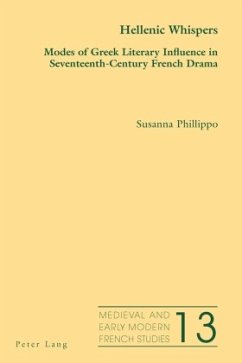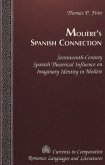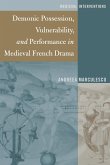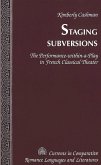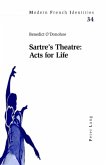Hellenic Whispers builds a picture of how Greek literature was received and reworked by the authors of seventeenth-century French tragedy. Using case studies, the author establishes a new methodology for exploring the variety of responses and creative processes involved in these encounters with classical Greek material. The book explores the complex interactions surrounding these adaptations of Greek dramatic material, involving the input of scribes, editors, translators and earlier authors, and asks the important question of what these dramatists conceived of themselves as doing. Focusing on a time and place where cultural predilections and a lack of linguistic training made engagement with the original Greek texts problematic, the book explores the creative role of intermediary sources, the build-up of chain reactions between sources and the cumulative processes of recreation involved in the genesis of seventeenth-century dramatic texts. The volume also goes on to explore widerquestions relevant to the classical tradition and issues of 'source study' and reception.
«[...] the wealth of information about the literary landscape of early modern France in addition to the compelling readings of certain of Racine's plays make the volume of interest to a student of French drama and indispensible to one interested in the reception of classical literature.»
(Mary Hamil Gilbert, Religious Studies Review 42/2 2016)
(Mary Hamil Gilbert, Religious Studies Review 42/2 2016)

